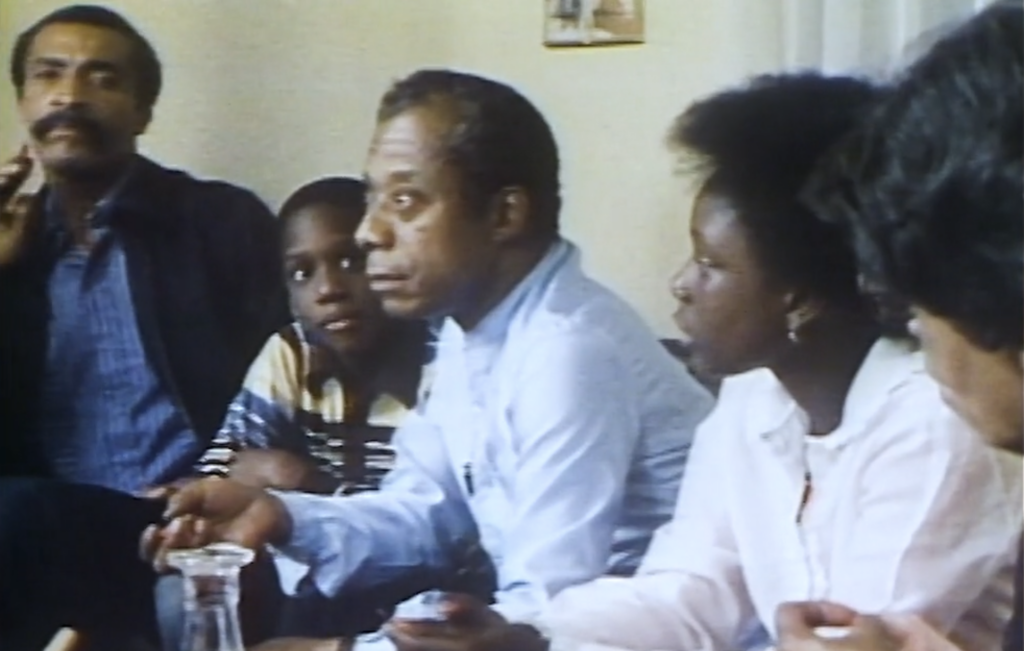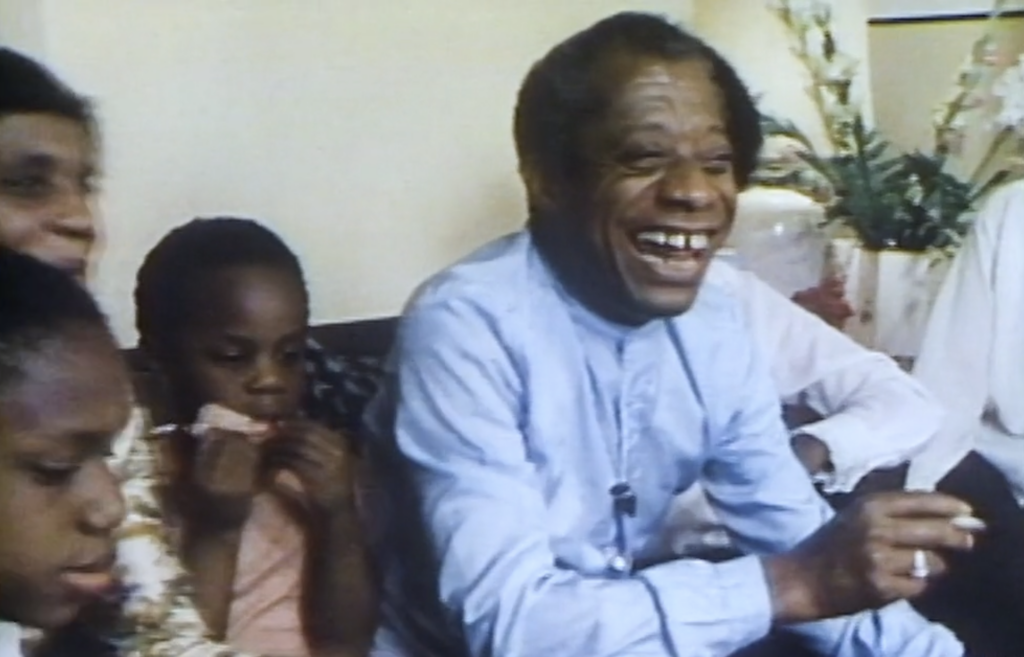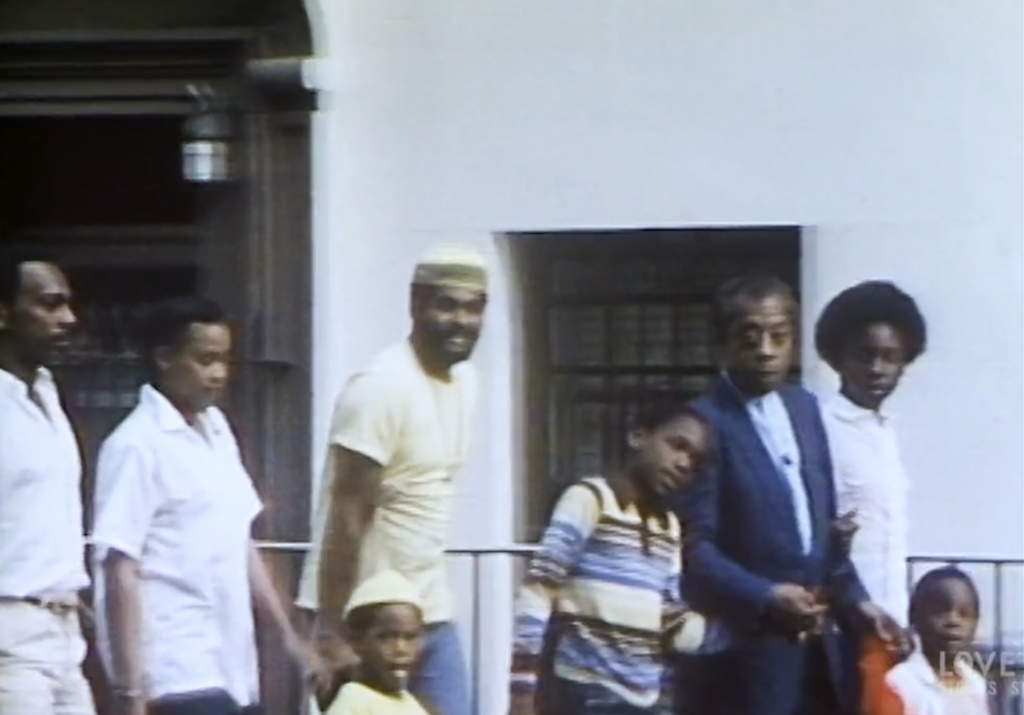
In 1979, Joseph Lovett, a producer for ABC's 20/20 and was assigned a profile of James Baldwin for the release his 19th book ‘Just Above My Head'. Lovett's team produced a powerful segment that has never been aired or really seen by many until this week, including rare casual footage of the author at home with his extended family, a description of American racism and white fragility without redemption, and a segment discussing why he wrote the gay pillar, ‘Giovanni's Room'
After shooting the segment, Lovett waited for it to air and finally asked ABC's 20/20 executives about it. This team, charged with creating an answer to CBS' 60 Minutes said they spiked the profile because, “Who wants to listen to a Black has-been,” Esquire reports.
Never Aired: Profile on James Baldwin ABC's 20/20, 1979 from A Closer Look on Vimeo.
James Baldwin on Race in America
The most devastating and intensely serious portion is in Baldwin's New York home where he lives with and hosts extended family. They are familiar, happy to see each other, hang on his every word. Baldwin pats a young boy on the head and laughs with his whole body. But when Sylvia Chase asks about race in America, he is intensely serious, and the family silent. Speaking from personal and traumatic experience and clearly turned over and over for a long time trying to make sense of it, Baldwin says,
“I was 7 years old 47 years ago and nothing has changed since then.”
That was 1979 and what he then spoke of is immediately recognizable 40 years later. Just that fact of being able to recognize elements is damning to the lot of us. He goes on,
” I didn't have an awful lot of choice [of the decision to write it] . ‘Giovanni's Room' comes out of something which tormented and frightened me, the question of my own sexuality.
I used to know — when i was younger — a great many men, boys, who were so terrified that they might have a homosexual …that they might be bisexual…they might want to go to bed with a man….that they might be able to fall in love with a man….
James Baldwin
“White people go around, it seems to me, with a very carefully suppressed terror of Black people—a tremendous uneasiness,” Baldwin said. “They don't know what the Black face hides. They're sure it's hiding something. What it's hiding is American history. What it's hiding is what white people know they have done, and what they like doing. White people know very well one thing; it's the only thing they have to know. They know this; everything else, they'll say, is a lie. They know they would not like to be Black here. They know that, and they're telling me lies. They're telling me and my children nothing but lies.”

James Baldwin on His Own Sexuality and Writing ‘Giovanni's Room'
The section on Giovanni's Room is about halfway through.
Chase asks why he wrote ‘Giovanni's Room' in 1955, when “to deal with homosexuality was difficult, and you already were dealing with [being] a Black writer. What made you decide to do that?”
Baldwin looks as if he's actively figuring out why and then says,
“I didn't have an awful lot of choice [in writing it] . ‘Giovanni's Room' comes out of something which tormented and frightened me, the question of my own sexuality.
I used to know — when i was younger — a great many men, boys, who were so terrified that they might have a homosexual …that they might be bisexual…they might want to go to bed with a man….that they might be able to fall in love with a man.
They were so frightened of that they could never fall in love with anybody else. They were so frightened of men they couldn't touch women. Giovanni's room comes somewhere out of that.”
Chase follows up, “Did you also feel that you wanted to get it on the record, your own sexuality early.”
“I dont know if i wanted to get it on the record but I wanted to confront it. I'm very glad that that was done because It also simplified my life in another way because it meant i have no secrets. Nobody can blackmail me. No you didn't tell me. I told you,” Baldwin replied.
James Baldwin: the Never-Aired Profile
“He hadn't had a drop to drink and he was brilliant, utterly brilliant,” Lovett told Esquire, “We couldn't have been happier. He was such an eloquent, masterful speaker, with such a great mind. It was such a privilege.”
Lovett told Esquire his response to the “has-been” explanation was “I was stunned,” Lovett said. “I was absolutely stunned, because in my mind, James Baldwin was no has-been. He was a classic American writer, translated into every language in the world, who would live on forever, and indeed he has. His courage and his eloquence continue to inspire us today.”




